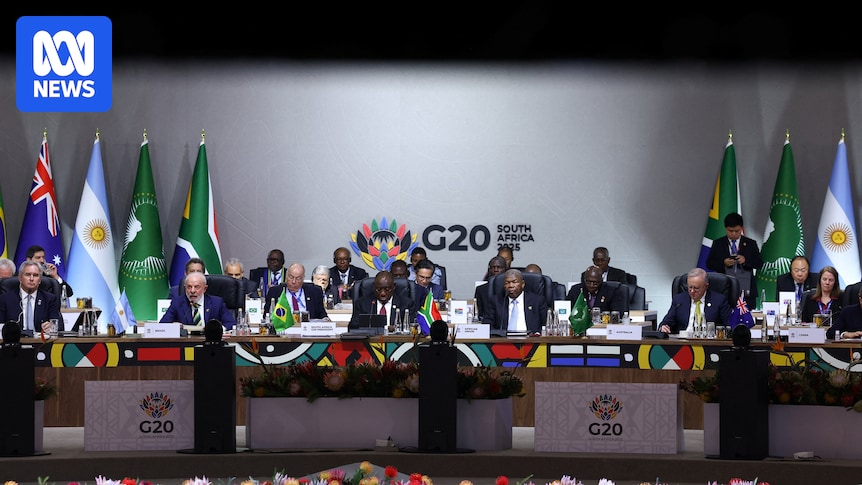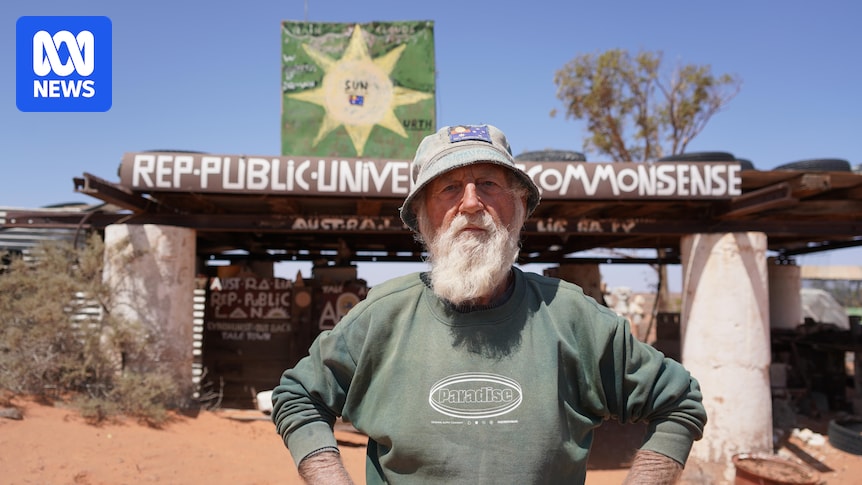
The leaders of the world’s foremost economies have delivered a significant rebuke to former US President Donald Trump by signing a joint statement at the G20 summit that reinforces their commitment to the Paris climate agreement and supports open trade. This collective move was announced during the summit’s opening on Saturday by South Africa’s President Cyril Ramaphosa, who highlighted the “overwhelming consensus” among the 19 participating countries to endorse the “worthy G20 leaders’ document.”
In a notable absence, Mr. Trump chose not to attend the summit, becoming the only G20 member to boycott the event. He had urged global leaders to abstain from signing the traditional joint declaration at the summit’s conclusion. However, the leaders, including Australia’s Prime Minister Anthony Albanese, stood united behind the comprehensive 30-page communique.
Climate Change Takes Center Stage
The G20 document makes several references to climate change—an issue Mr. Trump has previously dismissed as a “hoax”—as well as net zero targets and the Paris Agreement, from which the US had been withdrawing. Prime Minister Albanese expressed optimism at a press conference in Johannesburg, stating, “It’s a very positive sign that the world wants to get on with cooperating and it’s a very positive statement going forward.”
A source close to the negotiations expressed relief that the declaration finally included a shared commitment to open trade, a critical topic as Mr. Trump had been attempting to reshape global trade rules to favor the US. When asked if the statement was a repudiation of Mr. Trump’s policies, Mr. Albanese responded that it merely reflected the commitments already made by world leaders. “It’s about what the world has committed to: the Paris agreement and to action on climate change,” he noted, emphasizing the “overwhelming support for action on climate change.”
Financial Implications of Climate Commitments
The G20 statement “reaffirmed” each leader’s commitment to tackling climate change by enhancing the full and effective implementation of the Paris Agreement. It also underscored the significant challenges and financial costs countries face in meeting their emissions reduction targets, known as “nationally determined contributions.”
“We highlight that the needs of developing countries to implement their nationally determined contributions are estimated at $US5.8-5.9 trillion for the pre-2030 period,” the statement reads.
Fossil Fuel Transition
While Prime Minister Albanese was preparing to sign the G20 Leaders’ Declaration, his Energy Minister Chris Bowen was endorsing a separate climate agreement at the COP30 conference in Brazil. The “Belém Declaration on the Transition Away from Fossil Fuels” was described by Michael Poland from the Fossil Fuel Non-Proliferation Treaty Initiative as containing “the strongest language on phasing out fossil fuels that Australia has ever supported.”
“Fossil fuels are the main drivers of global greenhouse gas emissions and that the projected CO₂ emissions from continued fossil fuel production, licensing, and subsidies are incompatible with limiting the temperature rise to 1.5°C,” the Belém Declaration states.
A spokesperson for Mr. Bowen highlighted Australia’s instrumental role in delivering the landmark agreement at COP28 to transition away from fossil fuels and supported the Belém declaration, including its call for a road map to implement that commitment.
Australia’s Energy Strategy
Despite Australia’s significant reliance on coal and gas exports, domestically, the Albanese government acknowledges that gas will remain part of the country’s energy mix “through to 2050 and beyond.” When questioned about the compatibility of this stance with the Belém statement, Mr. Albanese affirmed, “Yes. [Gas] is needed, it’s part of the transition which is occurring. What you need to back up renewables is firming capacity.” He added, “Our position is the same today as it was yesterday.”
Diplomatic Engagements and Future Prospects
On the sidelines of the G20 summit, Prime Minister Albanese engaged in discussions with Germany’s chancellor and European Union leaders to advance talks on a free trade deal, expressing a desire to finalize the agreement by the first quarter of 2026. He also met with Türkiye’s President Recep Tayyip Erdoğan, who invited him to attend the next Anzac Day commemoration in Gallipoli.
Australia recently handed over the hosting rights for next year’s COP31 climate conference to Türkiye, resolving a prolonged impasse, with Mr. Bowen set to assume the summit’s presidency. Amid concerns about the pressure on global forums like the G20, President Ramaphosa emphasized the importance of multilateralism, stating, “Leaders have a responsibility not to allow the integrity of the G20 to be weakened, in fact, it has been strengthened. Multilateralism can and does deliver.”







